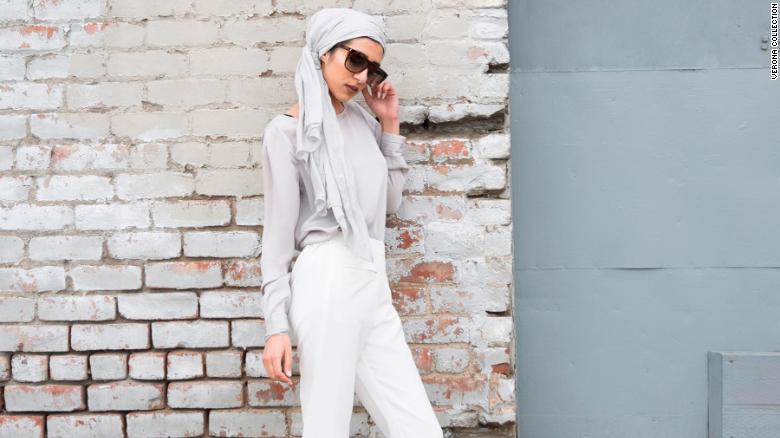Macy's decision to sell hijabs sparks debate among Muslim women
(CNN)American department store Macy's sparked a fierce debate on Thursday, when it launched a line of "modest clothing" that featured hijabs.
The Verona Collection was founded by fashion photographer Lisa Vogl, after she converted to Islam in 2011, and struggled to find modest, fashionable clothing. The brand stands for "women's empowerment and taking pride in one's Muslim identity," according to its website.
Macy's decision to stock Vogl's line came after US retailer Nike released a "Pro Hijab" for Muslim athletes, and fashion brand American Eagle's limited-edition denim hijab, which sold out.
While the department store's efforts to be inclusive were applauded by some online, others criticized it for legitimizing the hijab -- a religious headscarf that has been politicized in some parts of the world in recent years and closely tied to women's rights issues.
Over the past few months in Iran, for example, some women have removed their headscarves in public to protest the country's compulsory hijab law. At least 29 people were arrested in the capital, Tehran, for their involvement in the protests.
The Council on American-Islamic Relations (CAIR), a US-based Muslim civil liberties and advocacy organization, said Macy's had "come under attack online by Islamophobes who routinely attack any manifestation of Islam in American society." CNN reached out to Vogl and Macy's, but they had no comment.
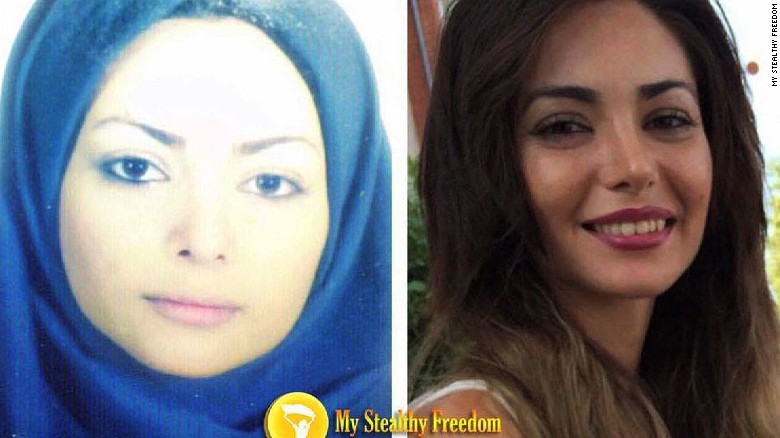
An image from #MyStealthyFreedom's Facebook page.
New York-based Iranian activist and journalist Masih Alinejad launched a social media campaign, #MyStealthyFreedom in 2014, inviting women to post pictures of themselves without a hijab.
CNN invited Alinejad to debate this contentious topic with Palestinian-American civil rights activist and Women's March co-chair Linda Sarsour, who is based in New York and chooses to wear the hijab.
Their responses have been edited for brevity.
What does the hijab signify for you? What have been your experiences with this piece of clothing?
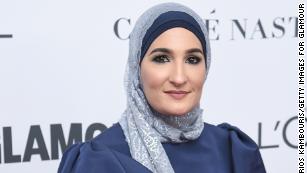
Linda Sarsour
Linda Sarsour: For me my hijab is my choice, it's my identity. I don't leave my home without it because it makes me feel whole. And I'm very proud, every single day, of what I represent when I walk out to the streets of New York City or around the country.
In my family I have four sisters, all four of my sisters do not wear hijab and they are just as Muslim as I am, and I love them no matter what they choose to do.
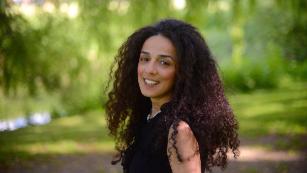
Masih Alinejad
Masih Alinejad: I don't wear hijab now, but I remember when I was a kid, hijab meant everything to me. I always had the feeling that it was a link between me and my mother and my community and my people. It was my identity.
I threw away my headscarf in my teenage youth -- but in secret -- when I found that it was not my identity, that it was because of the discriminatory law, social pressure, family pressure and emotional pressure.
This week Macy's launched a modest clothing line featuring the hijab. What is your reaction to this?
LS: To give Muslim woman the choice to be able to buy hijab at a major department store for me shows inclusivity, it gives women the opportunity to shop mainstream and not have to always be so siloed and go to specific retailers.
MA: If Macy's or Nike, Dolce & Gabbana, H&M, they choose to sell [hijab] that's really their choice.
When I see that you're promoting hijab I have two different feelings, it makes me happy that you are supporting my mother [who wears hijab], but it reminds me that the women of Iran are being ignored by the government of Iran, and they use this small piece of cloth, hijab, as the most visible symbol of oppression.
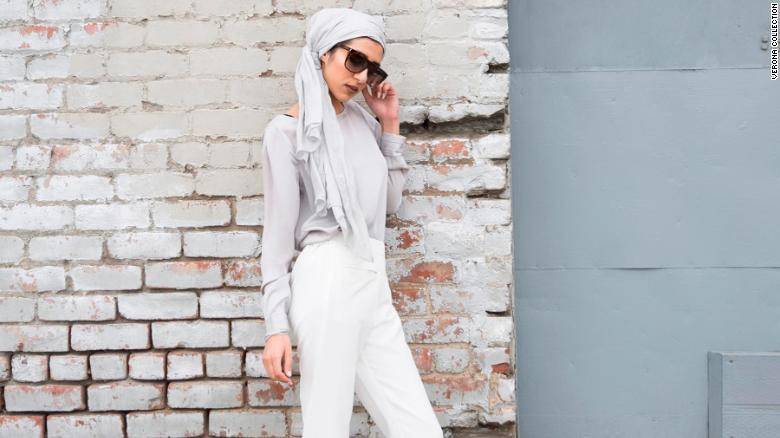
Verona Collection sells a variety of maxi dresses, tops, cardigans, pants and hand-dyed hijabs.
LS: [Macy's is] doing this because it's a good business decision and because they know that there is a market and that Muslim women are a big consumer base in America. So of course this is not a human rights campaign on behalf of Macy's.
We can hold both positions and say we respect your mom who chooses to wear hijab and also respect the women who choose not to wear hijab and stand up against governments who oppress women.
News Courtesy: www.cnn.com

